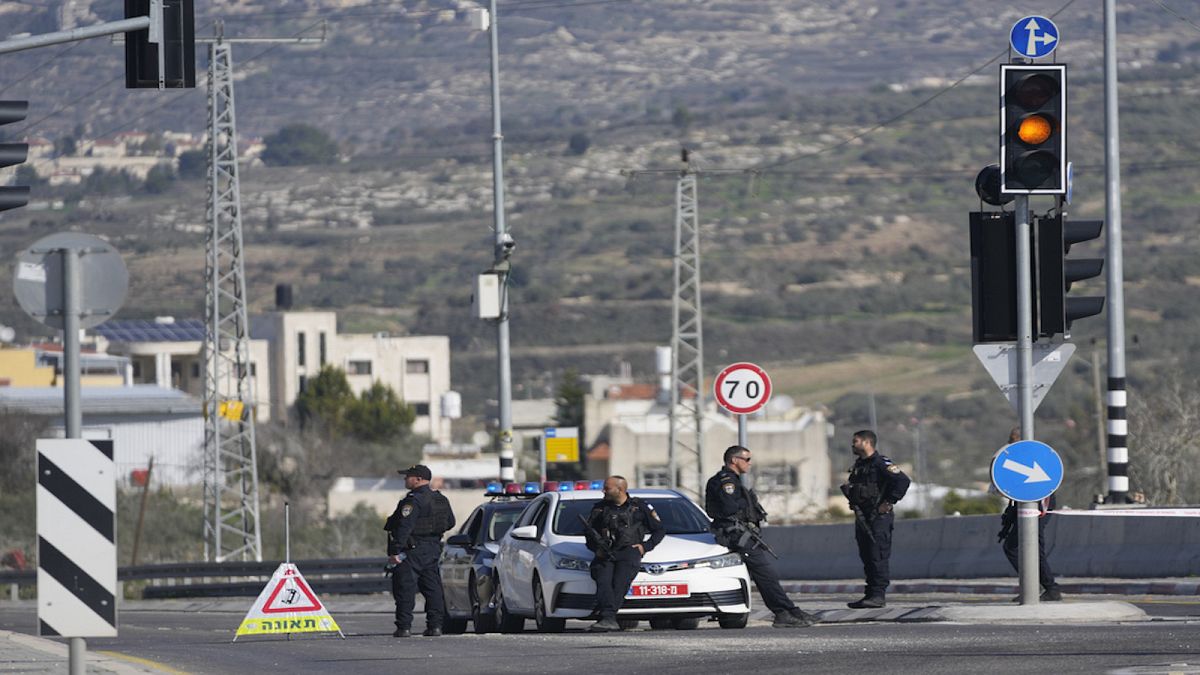Israeli Prime Minister Benjamin Netanyahu has vowed to respond with force after a group of gunmen opened fire on a bus carrying Israelis in the occupied West Bank. The attack, which took place in the Palestinian village of Al-Funduq, resulted in the deaths of at least three people and wounded seven others. Two women and a man were among the victims of the shooting, as reported by Israel’s Magen David Adom rescue service. Netanyahu promised to “reach the despicable murderers” responsible for the attack and to hold them accountable, along with anyone who helped them. The IDF is currently searching for the attackers, while Hamas praised the incident although they did not claim responsibility for it.
Palestinian militants have been carrying out attacks against Israelis in recent years, with the Palestinian Health Ministry reporting that at least 838 Palestinians have been killed by Israeli fire in the West Bank since the beginning of the conflict in Gaza. These attacks have contributed to escalating tensions in the region and added to the ongoing violence. Despite this, talks aimed at reaching a ceasefire and securing the release of hostages have shown progress. The war in Gaza was sparked by a surprise attack by Hamas-led militants over a year ago, resulting in a significant loss of life and numerous abductions. The situation remains precarious, with around 100 hostages still believed to be held in Gaza, some of whom are feared dead.
The Israeli Prime Minister’s strong response to the recent attack reflects the severity of the situation in the West Bank and the ongoing threat of violence. Netanyahu’s determination to hold the perpetrators accountable and bring them to justice highlights the need for security measures to protect civilians in the region. The IDF’s efforts to track down the attackers demonstrate a commitment to maintaining law and order and ensuring the safety of all residents. The attack has once again underscored the fragile nature of the security situation in the West Bank and the need for continued vigilance.
Hamas’ praise for the attack, while stopping short of claiming responsibility, indicates the complex web of allegiances and rivalries at play in the region. The group’s support for violence against Israelis further complicates efforts to reach a lasting peace agreement and highlights the ongoing challenges facing the Israeli-Palestinian conflict. The involvement of multiple factions and the prevalence of militant groups add layers of complexity to the already volatile situation in the West Bank, making it difficult to achieve lasting stability and security. Addressing the root causes of violence and extremism will be crucial in preventing further attacks and fostering a climate of peace and cooperation.
As the conflict in Gaza continues to rage, with casualties mounting on both sides, the need for a comprehensive and sustainable solution becomes increasingly urgent. The toll of the war has been devastating, with widespread destruction and loss of life causing immense suffering for civilians caught in the crossfire. The recent progress in ceasefire talks and efforts to secure the release of hostages offer a glimmer of hope for de-escalating the conflict and moving towards a peaceful resolution. However, the challenges of navigating the complex political landscape and addressing deep-seated grievances will require sustained commitment from all parties involved.
In the midst of ongoing violence and instability, the need for international support and engagement remains crucial in facilitating dialogue and negotiation between Israeli and Palestinian factions. The international community plays a key role in mediating conflicts and promoting peaceful resolutions to longstanding disputes. By providing diplomatic support and resources for peacebuilding efforts, global partners can help create the conditions for dialogue and reconciliation. Collaborative efforts to address the root causes of conflict and promote understanding between opposing sides are essential in achieving lasting peace and security in the region. As the situation in the West Bank and Gaza continues to evolve, the world must remain vigilant and proactive in supporting efforts to end the cycle of violence and build a future based on mutual respect and cooperation.










